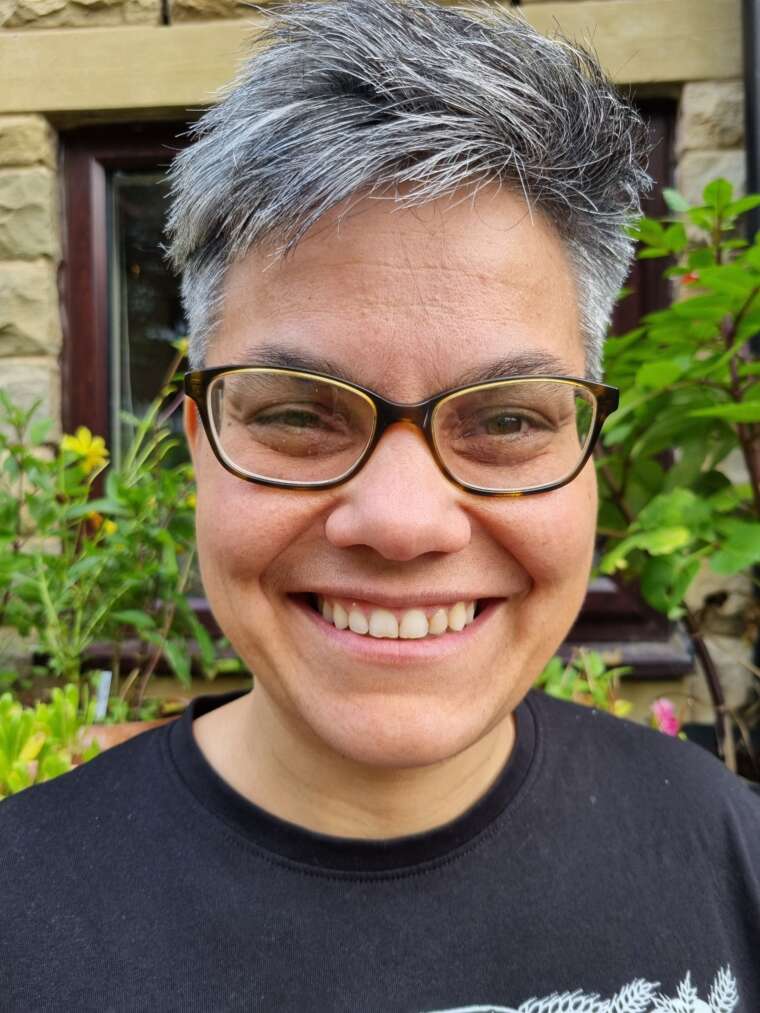About Nora
Nora has trained with College of Craniosacral Therapy in Manchester. She graduated in the summer 2024; her training included extensive work with voluntary clients over the course duration of two years, which enabled her to gather experience of working with a varied set of clients and conditions.
Nora has been receiving craniosacral treatments for some 15 years and eventually felt the urge to study the art herself and be able to offer the goodness back to the world.
Nora is a joiner by her main profession and has worked in the valley as a self employed trader until quite recently, when she decided to take on an easier job at Calderdale College working with apprentices.
Nora has relied on craniosacral practice to keep her body and mind in order; to be able to deal with a physically and mentally demanding profession and running her own business and so is familiar with the benefits craniosacral therapy (CS) can have on both planes. Her first encounter with CS was after a pulled intercostal muscle and she was lucky enough to receive a years worth of treatments for free from Sam Lowi whilst Sam was doing her training. The mental health benefits soon became obvious and some chronic pains were resolved, alongside giving Nora the lived understanding of how the two were connected and how craniosacral therapy can be used to resolve long standing issues.
Nora still receives regular treatments from Sam.
Nora is hoping to develop her practice of working with varied set of clients, dealing with simple physical injuries to the more opaque art of boosting peoples’ wellbeing and the ever evolving work of supporting clients with neuro diverse brains.
Nora likes all things earthy such as good food, gardening, lying down and (obviously) Earth. Nora has an outlook of animism – belief that everything is alive and has agency and we are better off including all beings in our network.
About Craniosacral therapy
Craniosacral (CS) therapy is historically an offshoot of osteopathy. One of the founding figures of the craniosacral therapy argued that the gentler we are in our treatment of the body, the less reason is there for the body to put up protective guard that can mean resistance to changes that are needed for healing.
Another central principle of CS therapy is always taking into account the whole system. We are not treating an injured ankle but the whole person. Again, this contributes to the process as the system as a whole is acknowledged and so it feels safe to undertake the changes needed. The system as a whole also gives us the information we need to understand the root causes of an issue which can often be distant from the obvious point of pain.
Craniosacral therapy is well known for its positive effects on difficult to heal injuries, work with newborn babies and new mothers. CS therapy has a growing reputation as a great support tool for neurodiverse children or adults and their families. Clients also come with a wide variety of issues such as ear problems, issues of nerve origin, narrow palate, dental issues, tongue tie, RSI, chronic conditions to do with digestion or depleted energy levels. The list could really be endless as CS has great effect of calming down the nervous system and everything in our lives is connected to condition of our nervous system.
In a typical treatment we will have a chat at the beginning to check in how you are doing and then you will lie down on the couch. I would first spend a few moments doing bit of grounding with you and then progress onto doing various holds that are mostly placed on the head, along the spine and around sacrum. Some holds are over the face as well. The touch is always very gentle and everything is optional. For issues with limbs and neck a gentle unwinding might be done on the arms, legs or neck to release various stuck patterns than might show as tension, pain or reduced mobility. For clients who cannot lie down alternative arrangements can be made. It is also possible to work off the body if the client wishes so.

